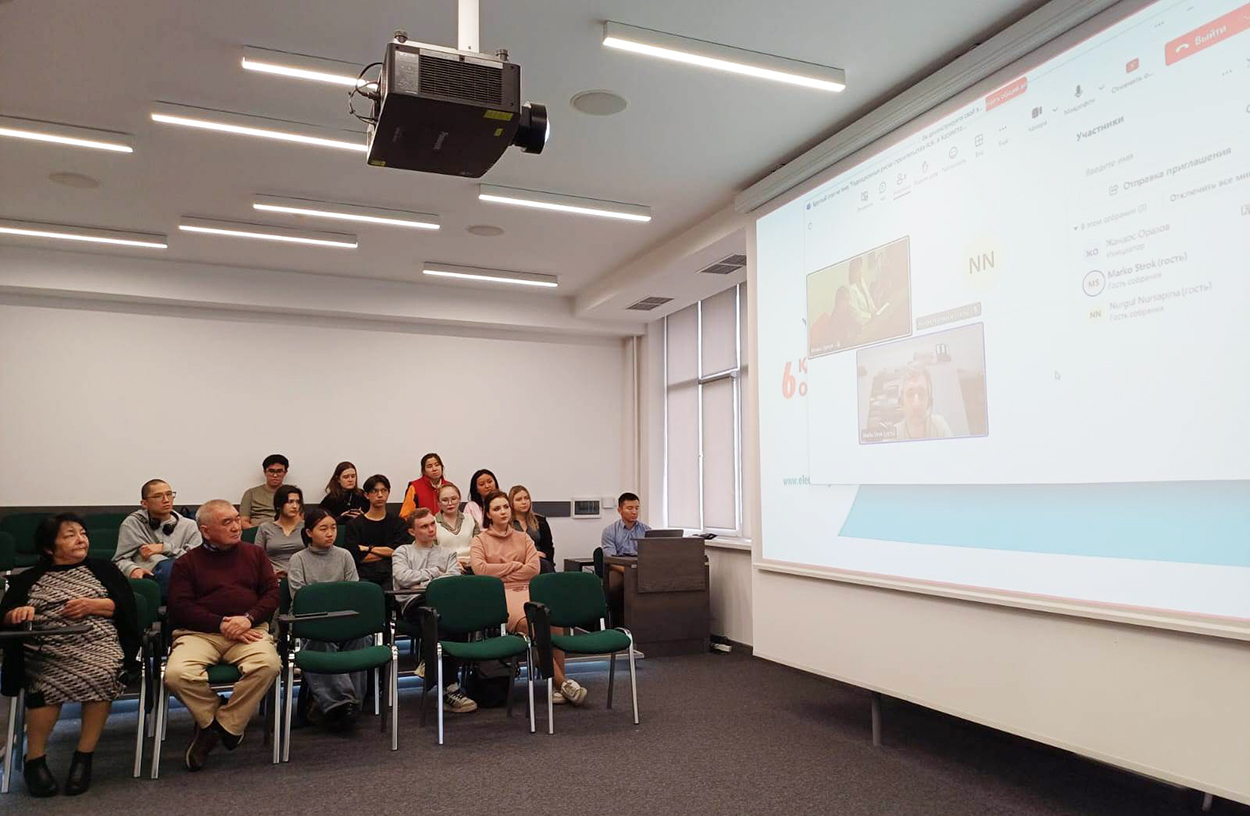Al-Farabi Kazakh National University held an international round table on ‘Radiation risks of NPP construction in Kazakhstan’ organised by the Faculty of Chemistry and Chemical Technology, DKnews.kz reports.
The event, held in a mixed format, brought together both Kazakhstani public figures, teachers and students, and foreign scientists. The discussion touched upon key issues of radioecological risks and prospects of nuclear energy in Kazakhstan, with a special emphasis on international experience and co-operation in this area.
The Faculty of Chemistry and Chemical Technology of KazNU has considerable experience in radioecological research. The modern radiochemical laboratory named after Marie Sklodowska-Curie, operating at the faculty, conducted comprehensive studies of radioactive contamination, including monitoring of the former Semipalatinsk test site and uranium mines in Central Asia. An important part of the scientific activity of the Faculty is co-operation with the Japan Atomic Energy Agency and the Institute of Nuclear Physics of Kazakhstan, within the framework of which the staff of the Department of General and Inorganic Chemistry took long-term courses in radiation monitoring.
The main reports were presented by leading experts in the field of radiation ecology, including Professor, PhD Matveeva I.V. and Senior Lecturer, PhD Yarova E.Y., as well as an invited expert - PhD Marko Strok, head of the radiochemical laboratory of the Jozsef Stefan Institute (Slovenia). In their speeches they highlighted both scientific and applied aspects of the use of nuclear energy in Kazakhstan, emphasising its impact on the radiation background and safety measures.

Dr Marko Štrok shared Slovenia's experience in the field of nuclear power, stressing that when nuclear reactors are operated properly, their contribution to the radiation background is minimal and amounts to hundredths of the natural background. He also noted the importance of developing and implementing radiochemical methods to solve the problems of safe disposal of radioactive waste and radionuclide cycling in the environment.
Academician Burkitbayev Mukhambetkali, founder of the Radiation Ecology Laboratory, shared his point of view on the issue of NPP construction in Kazakhstan. He noted that the construction of NPPs in Kazakhstan, as an independent and rapidly developing state with rich uranium resources, is one of the important tasks of the near future.
During the panel discussion, participants discussed the prospects for nuclear technology in the coming decades, potential technological breakthroughs and their contribution to the UN Sustainable Development Goals. Special attention was paid to the issues of effective communication with the public about the benefits and safety of peaceful atom.








